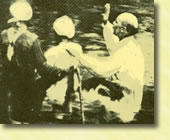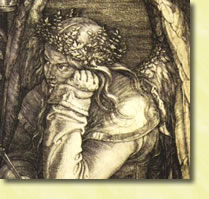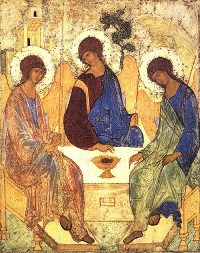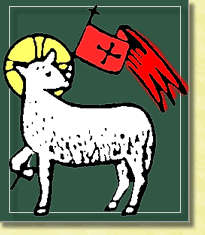I got an email awhile ago from a young Roman Catholic gentleman who expressed appreciation for some of what I’ve written on my blog, following a growing frustration with online rationalist Roman Catholic apologetics.
I first came across your blog ten years ago when I was fifteen and beginning to seriously study the Reformation and Roman Catholicism from a Baptist background, and read it intermittently for a couple of years. I did eventually become a Catholic, at twenty four, but recently began reading your blog again. . . . The reason I’ve returned to reading your blog is largely because of a burnout with modern Catholic discourse [especially rationalist Catholic apologetics] . . . I’ve found that reading solid devotional writing like yours, whether from Catholics, Protestants, or Orthodox, does far more for my faith than the old polemical reading I used to do.
![]() Dear xxxxx,
Dear xxxxx,
I’ve been meaning to reply to your kind email. It is Ash Wednesday, and I have a little time. Your email was quite encouraging to me. Around six months ago, I began receiving repeated emails from a Roman Catholic gentleman who would ask one-line questions such as “Who founded your church?,” while including links to conservative Catholic apologetics sites. I sent several replies that I hoped would be charitable, but he ignored what I actually wrote, and just kept bombarding me. Finally, I had to block his email address. So imagine how encouraging it was to receive a positive email from a Catholic reader of my blog. I often wonder whether what I write is helpful to anyone except myself, and I am always happy to hear when it is.
Concerning what you write about rationalist apologetics: I find conservative online apologetics to be generally toxic; it does not matter what brand is being sold. The biggest problem with these people seems to be a peculiarly modern obsession with epistemological certitude coupled with an obsessive Cartesian anxiety about doubt. These folks spend way too much time focusing on arguments as to why their side is the only correct one, and far too little time exploring the substance of their Christian faith, whether they be Catholic, Orthodox, some kind of Protestant, or Anglican (like myself).
One of the most helpful books I have read in recent years was D. Stephen Long’s Saving Karl Barth: Hans Urs von Balthasar’s Preoccupation (Fortress Press, 2014). In this book, Long (a Methodist) writes about how Balthasar (a Roman Catholic) rediscovered the heart of Christian faith through reading Karl Barth (Reformed). Barth’s theology focused on the Nicene-Chalcedonian center of Christian faith: the Trinity and the incarnation of God in Jesus Christ. Balthasar believed that if Catholicism were going to be renewed in the 20th century, it needed to return to this Nicene-Chalcedonian center, and abandon the unfruitful manualist Apologetics of the late 19th and early 20th century that focused on Catholic quarrels with Protestantism and modernity. It is this creedal center that I have found most fruitful for my own theology and spiritual life. (more…)










